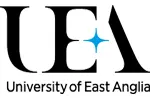We're moving! This site will be relocating to goingto.university in 2026. Please update your bookmarks to the new address.


the United Kingdom
University of East Anglia (UEA)| The award | How you will study | Study duration | Course start | Domestic course fees | International course fees |
|---|---|---|---|---|---|
| MA | Part-time | - | - | - | - |
Study
This Master's integrates various disciplinary perspectives to analyse key debates on the economic, political, social and environmental dimensions of globalisation. This programme will consider the process of globalisation and also the counter-tendencies and resistance to globalisation and how these are played out in Africa, Asia and Latin America.
Structure
This Master's course requires students to undertake compulsory and optional modules, an examination and to produce a dissertation. Optional seminars, workshops and sessions are offered throughout the programme for teaching and strengthening student essay and dissertation writing skills. The School of International Development addresses contemporary challenges via multi/interdisciplinary approaches, where research is organised into a series of Research Groups.
Teaching
The School of International Development at the University of East Anglia is a globally renowned department for teaching, research and consultancy on international development. Research in the School addresses challenges in developing and transition economies via disciplinary and multi/interdisciplinary approaches. Excellent staff:student ratios and teaching methods mean this School offers small class sizes and a friendly learning environment.
Employability
Graduates have been successful in entering employment including working for organisations such as the World Bank, the United Nations, DfID, JICA, Christian Aid, and Save the Children. UEA offer a series of regular seminars on 'Working in Development', with guest speakers from development agencies and there is also specific support for international students in their transition to studying in the UK.
Below are some suggested courses at other providers that you may also be interested in:
Commercial Law Dual (London and Singapore) LLM
Centre for Commercial Law Studies, Queen Mary University of London
Find out moreIf you do not meet the entry requirements for this course then consider one of these postgraduate preparation courses from another institution:
Graduate Diploma of Engineering (Electrical Systems)
Engineering Institute of Technology
Find out moreInternational Development (Environment, Sustainability and Politics) Graduate Diploma
University of Birmingham
Find out moreThere are 413 other courses listed from University of East Anglia (UEA). A selection of these are displayed below:
Adult Literacy, Lifelong Learning and Development: International Perspectives MA
University of East Anglia (UEA)
Find out moreJoin the StudyLink email list and never miss a chance to turn your study abroad dreams into reality!
